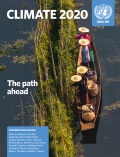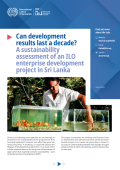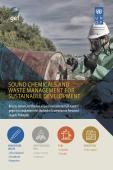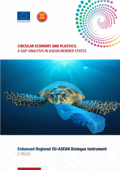
This report focuses on the path to net zero; the next and most pressing challenge that the global community faces. It equips policy-makers, practitioners, and interested observers with insights on how to make the agreement a reality in this make-or-break year. It features short, incisive articles from 30 authors drawn from the UN system and from governments, the private sector, academia, and civil society. They include:

This paper summarises the findings and lessons from an assessment into selected outcomes of the ILO Enter-Growth project in Sri Lanka—a micro- and small- enterprise development project principally working in agriculture sectors—ten years after it closed.

This document describes results, lessons, and human impact from selected GEF-funded projects to implement the Stockholm Convention on Persistent Organic Pollutants (POPs) and the Minamata Convention on Mercury.
The Green Growth Potential Assessment (GGPA) is a diagnostic tool developed by the Global Green Growth Institute (GGGI) that consists of a combination of data analysis and stakeholder consultation in order to identify and prioritise a country’s opportunities for green growth. This report presents the findings of the GGPA for Lao PDR. It reviews in detail the challenges and opportunities across a number of sectors and provides recommendations for each sector.

Preventing and reducing plastic pollution is about more than waste management. This report applies a circular economy perspective to plastics and presents frameworks for addressing related sustainability challenges. A shift to a circular economy will require coordinated policy interventions at all stages of the life-cycle of plastics, including: resource extraction and refining, design and manufacture of products, trade and retail, use and reuse, recycling, and final disposal when necessary.
